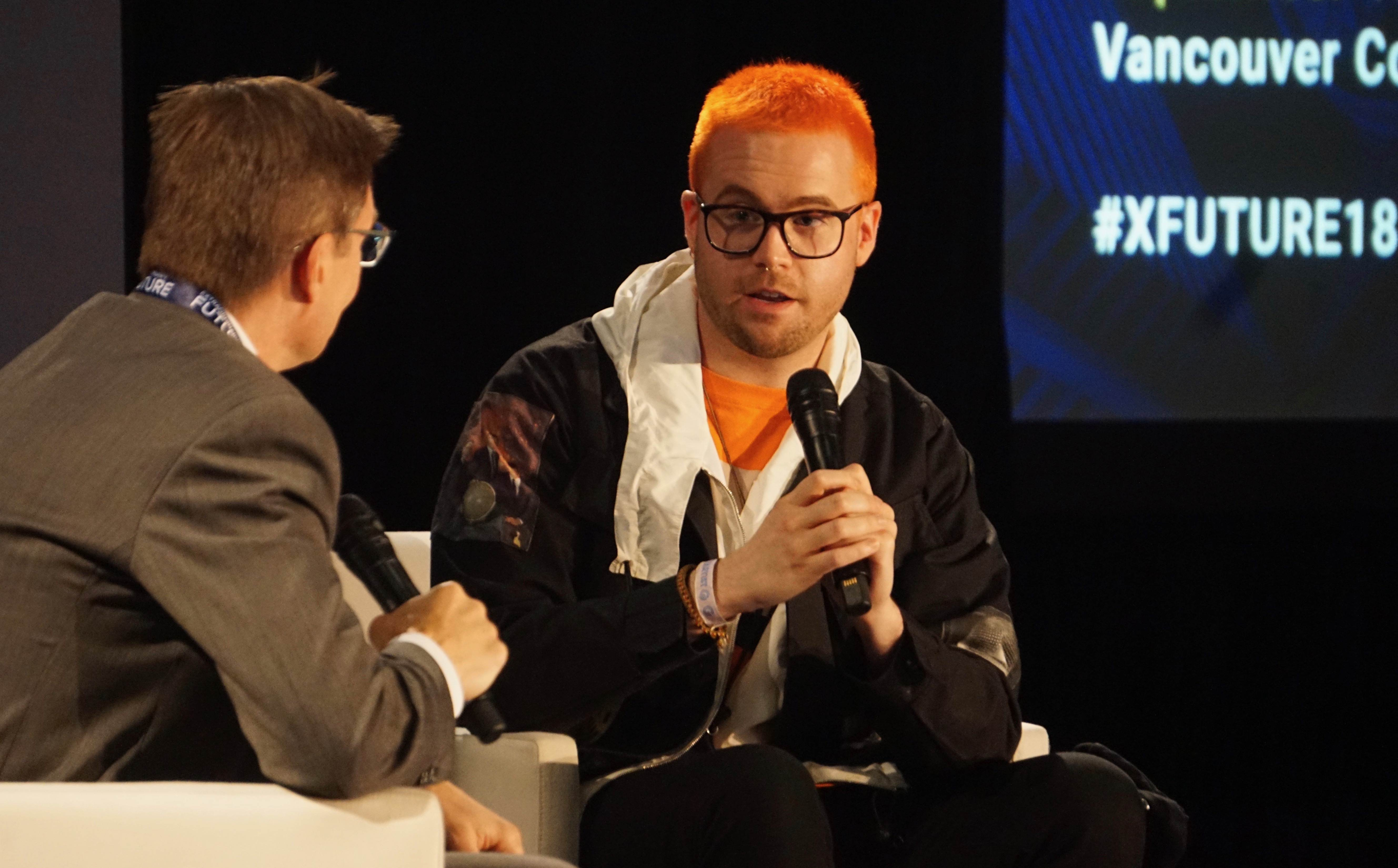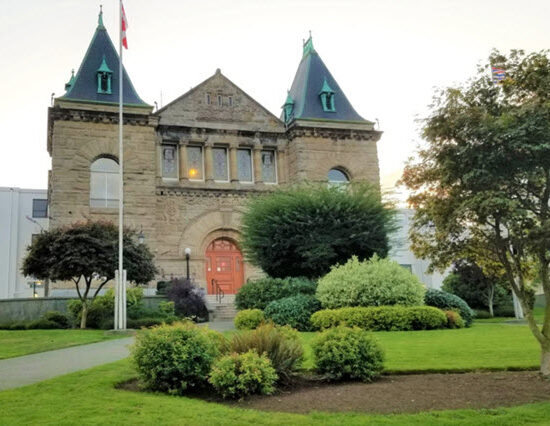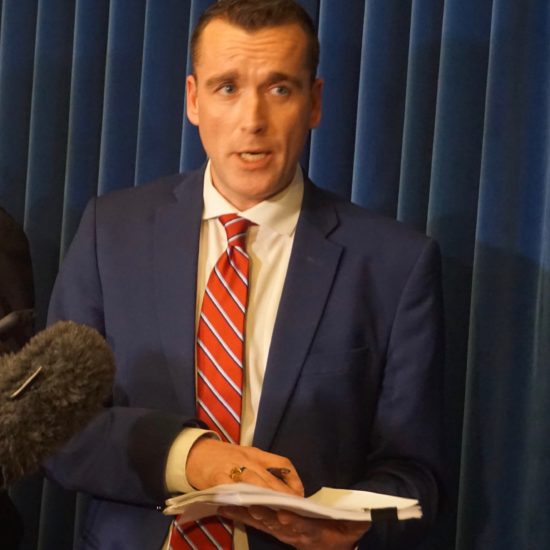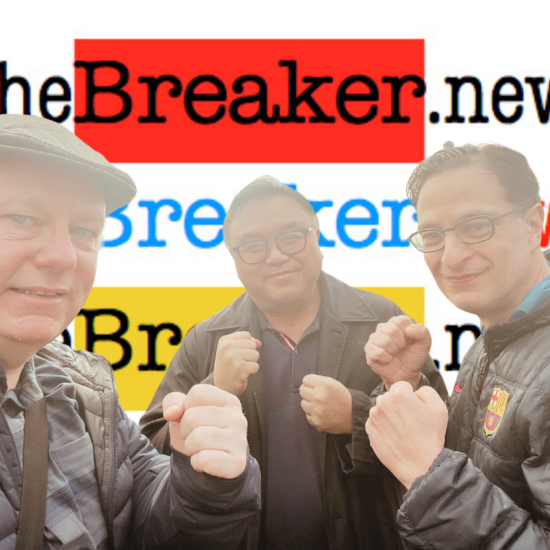
Bob Mackin
The political battleground that Facebook has become is harmful to democracy, says the Victoria whistleblower whose revelations of widespread data misuse shook the social media giant earlier this year.
Christopher Wylie told a tech investment conference on Sept. 19 in Vancouver that Facebook’s claim to be a community is an illusion.
He pointed to the stage he was on at the Vancouver Convention Centre and the audience at the Cambridge House International Extraordinary Future conference.

Christopher Wylie at the Extraordinary Future conference in Vancouver on Sept. 19 (Mackin)
“Everybody understands and hears what that person is saying, if that’s bullshit, someone can call me out,” Wylie said. “If I’m a candidate and I say something and I lie — news shock, lying happens all the time in politics! — but the difference is that the media can call me out, or an opposition candidate can call me out or civil society or members of the public can call me out.”
But, on Facebook’s version of a public forum, content can be surreptitiously tailored for and delivered to individual users.
Or, as Wylie put it: “I can whisper in your ear something with the benefit of having followed you around for months on end, read your conversations, listened in to what you say, what you’re interested in, what you watch, what you listen to and know exactly the types of things that you connect with and you don’t connect with.”
Facebook, he said, “has created the degradation of our public forum, because you can’t actually see what happens.”
Wylie said that is what made it a successful medium for disinformation, which is like magic. “What makes it so dangerous is that people enjoy receiving it. It’s not like you’re receiving something you don’t like, it wouldn’t work that way.”
Techniques used in political campaigns, from the Brexit referendum in 2015 to the 2016 U.S. presidential campaign, were honed with military precision by SCL Group, the military contractor where Wylie worked as research director. SCL begat its American division, Cambridge Analytica, and what Wylie called its subsidiary in Victoria, AggregateIQ.
Authorities on both sides of the Atlantic are investigating the companies that Wylie exposed. British Columbia’s Information and Privacy Commissioner Michael McEvoy has collaborated with former B.C. information watchdog Elizabeth Denham, who now is now the United Kingdom information commissioner.
Wylie said that psychological operations employed to deceive and confuse terrorist recruits or enemy combatants have been adapted for the digital world.
“If you’re a voter and you get led down the garden path, you are targeted in the same way,” he said. “We find you and we identify dispositional attributes in you that make you more inclined to engage with paranoid thinking, for example, or conspiratorial thinking or racial biases, and we start to compact that in you by disseminating information to you which is not necessarily true, but is conducive to amplifying your dispositional starting point.”
Wylie’s appearance coincided with the Vancouver civic election campaign that has been marked by anonymous Facebook pages promoting mayoral candidate Hector Bremner and attacking NPA rival Ken Sim. Both were removed from the platform last weekend for violating Facebook policy. Bremner denied responsibility at a Sept. 17 debate, but did not answer whether he wants to learn who was responsible.
In May, Facebook announced a new policy requiring election and issue-related ads in the United States to be clearly marked with a “paid for by” disclosure, and that advertisers must verify their identity and location.
“We believe that increased transparency will lead to increased accountability and responsibility over time – not just for Facebook but advertisers as well,” said Facebook’s director of product management, Rob Leathern, in a May 24 news release. “These changes will not prevent abuse entirely. We’re up against smart, creative and well-funded adversaries who change their tactics as we spot abuse. But we believe that they will help prevent future interference in elections on Facebook. And it is why they are so important.”
However, the policy has not been rolled-out in Canada, despite municipal elections in B.C. and Ontario and provincial elections in Quebec and New Brunswick this fall.
Listen to an excerpt from Christopher Wylie’s Sept. 19 appearance in Vancouver. Click below.
Support theBreaker.news for as low as $2 a month on Patreon. Find out how. Click here.










